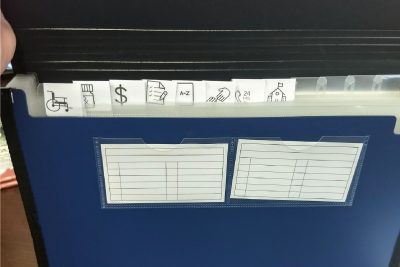A Brief Overview Keeping track of important documents for your child’s health can save you time and give you less stress. Take advantage of technology! If you choose to build a digital storage system, integrating it with your smart phone will make it easy to share information on-the-go with doctors, day care providers, school staff, Read More
A Brief Overview Alarming statistics indicate the pandemic worsened many behavioral health outcomes for young people. Governor Jay Inslee on March 14, 2021, issued an emergency proclamation declaring children’s mental health to be in crisis. President Joe Biden issued a Fact Sheet about the nation’s mental health crisis on March 1, 2022, as part of his State Read More
A Brief Overview Full Article When a student is struggling in school and there is reason to suspect the challenges are disability related, anyone can refer the student for an educational evaluation. If the evaluation shows that the student is eligible, services are provided through an Individualized Education Program (IEP). Washington State requires special education Read More
When a student’s behavior gets in the way of their learning and/or the learning of others, the school is responsible to figure out how to support behavioral expectations. One way to do that is to assess why the student might be acting out and use that information to consider how positive behavioral interventions might teach Read More
Why Get Help from PTI? Parent Training and Information (PTI) is federally funded to support family caregivers, youth, and professionals. We know educational systems use a lot of complicated words and follow procedures that can feel confusing. We do our best to provide tips for communicating as members of a school-and-family team that develops a student’s Read More
Under state and federal law, all parents have the right to information about their child’s education in a language they can understand. This information is translated on handouts in multiple languages from the Office of Superintendent of Public Instruction (OSPI). Language access includes translated documents and an interpreter for meetings and conversations. Parents have the Read More
A Brief Overview Full Article Whether on Zoom or around a conference table, sitting down with a team of professionals can feel intimidating to families. When a child’s Individualized Education Program (IEP) is on the agenda, emotions can overtake a meeting. Getting defensive or angry does not usually help, however. This article provides tools for Read More
A Brief Overview Districts are responsible to provide a Free Appropriate Public Education (FAPE) to students within their boundaries with known or suspected disabilities that significantly impact access to learning. Read on to learn more about FAPE and student rights. Federal and state requirements to ensure that children with qualifying disabilities can access early learning Read More
A Brief Overview Understanding trauma and providing consistent skill building in Social Emotional Learning (SEL) can improve outcomes in education and elsewhere. Washington’s Office of Superintendent of Public Instruction provides free SEL training materials for educators and families on its website: k12.wa.us. Trauma-informed adults can use specific strategies to help children understand their emotions, describe Read More
A Brief Overview PAVE offers this article specifically to assist families navigating special education systems when they are new to our state, or if they have a child or youth who now needs special education The information in this article is available on a downloadable two-page handout. Families can get individualized help by filling out Read More
Schools and families continue to meet virtually to discuss special education services during the closures related to the coronavirus pandemic. Here are tips to help family members prepare for remote meetings to discuss a student’s Individualized Education Program (IEP), a Section 504 Plan, evaluation for special education services or something else related to a special Read More
Please note that these resources are not affiliated with PAVE, and PAVE does not recommend or endorse these programs or services. This list is not exhaustive and is provided for informational purposes only. PAVE provides a separate resource list to help parents support learning at home: Links for Learning at Home During School Closure WestEd.org, Read More
A Brief Overview The Adolescent Behavioral Health Care Access Act, passed into law by the Washington Legislature in 2019, gives parents and providers more leverage in treating a young person who won’t or can’t independently seek medical help for mental illness and/or substance use disorder. The Washington State Health Care Authority (HCA) in March 2020 Read More
A Brief Overview Full Article If you are a student with an Individualized Education Program (IEP), read this article to find out how you can be a leader on your IEP team. Your future is counting on you! By the time you are 16 years old, the school is required to invite you to your IEP meetings. Read More

